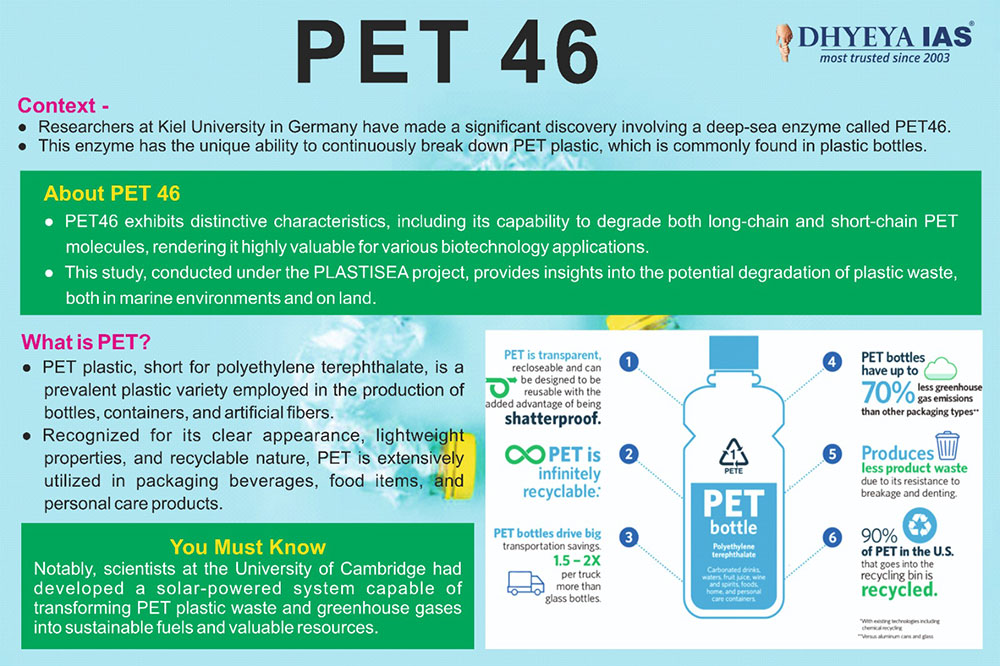
Context -
- Researchers at Kiel University in Germany have made a significant discovery involving a deep-sea enzyme called PET46.
- This enzyme has the unique ability to continuously break down PET plastic, which is commonly found in plastic bottles.
About PET 46
- PET46 exhibits distinctive characteristics, including its capability to degrade both long-chain and short-chain PET molecules, rendering it highly valuable for various biotechnology applications.
- This study, conducted under the PLASTISEA project, provides insights into the potential degradation of plastic waste, both in marine environments and on land.
What is PET?
- PET plastic, short for polyethylene terephthalate, is a prevalent plastic variety employed in the production of bottles, containers, and artificial fibers. Recognized for its clear appearance, lightweight properties, and recyclable nature, PET is extensively utilized in packaging beverages, food items, and personal care products.
You Must Know
- Notably, scientists at the University of Cambridge had developed a solar-powered system capable of transforming PET plastic waste and greenhouse gases into sustainable fuels and valuable resources.
